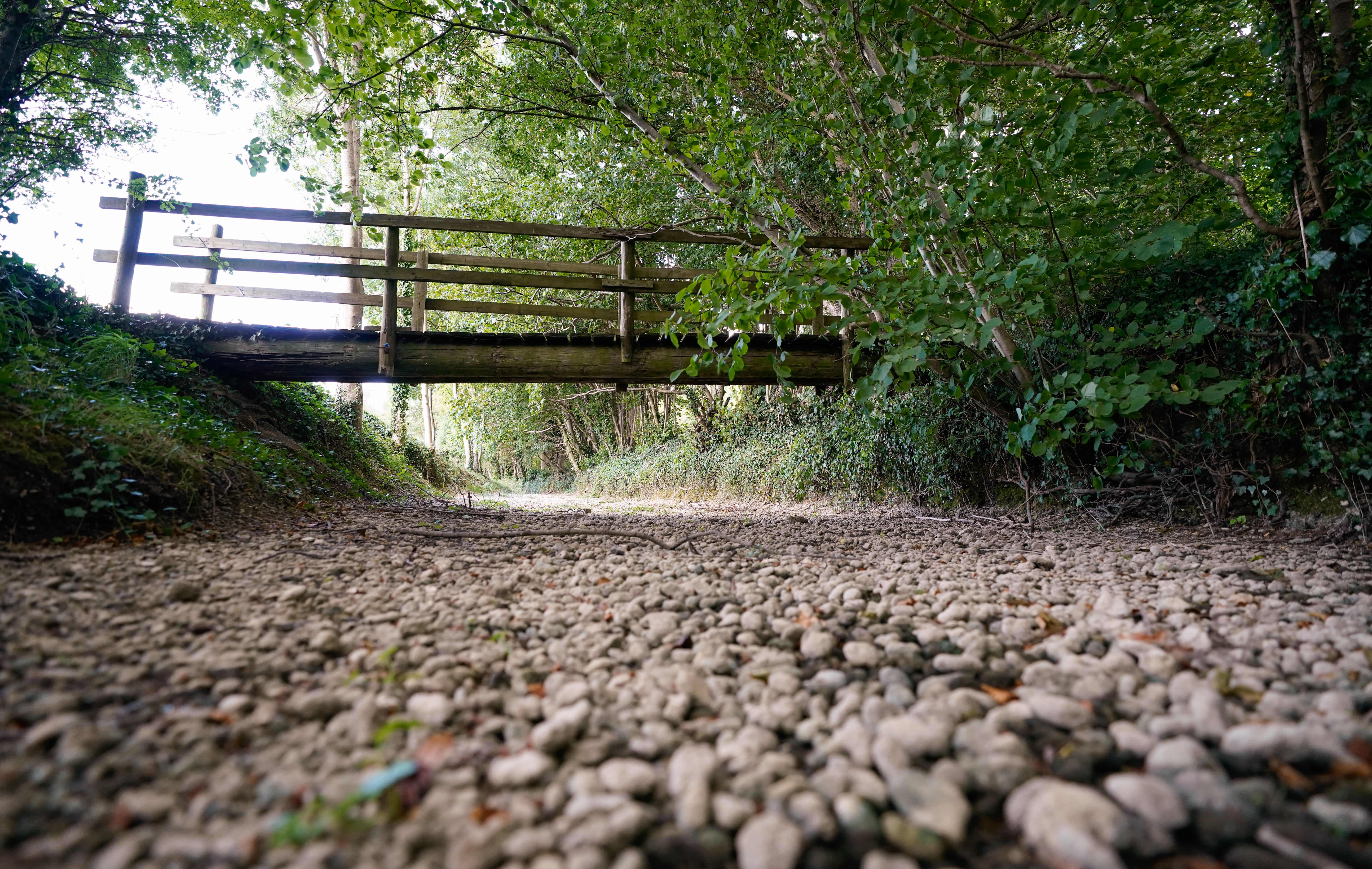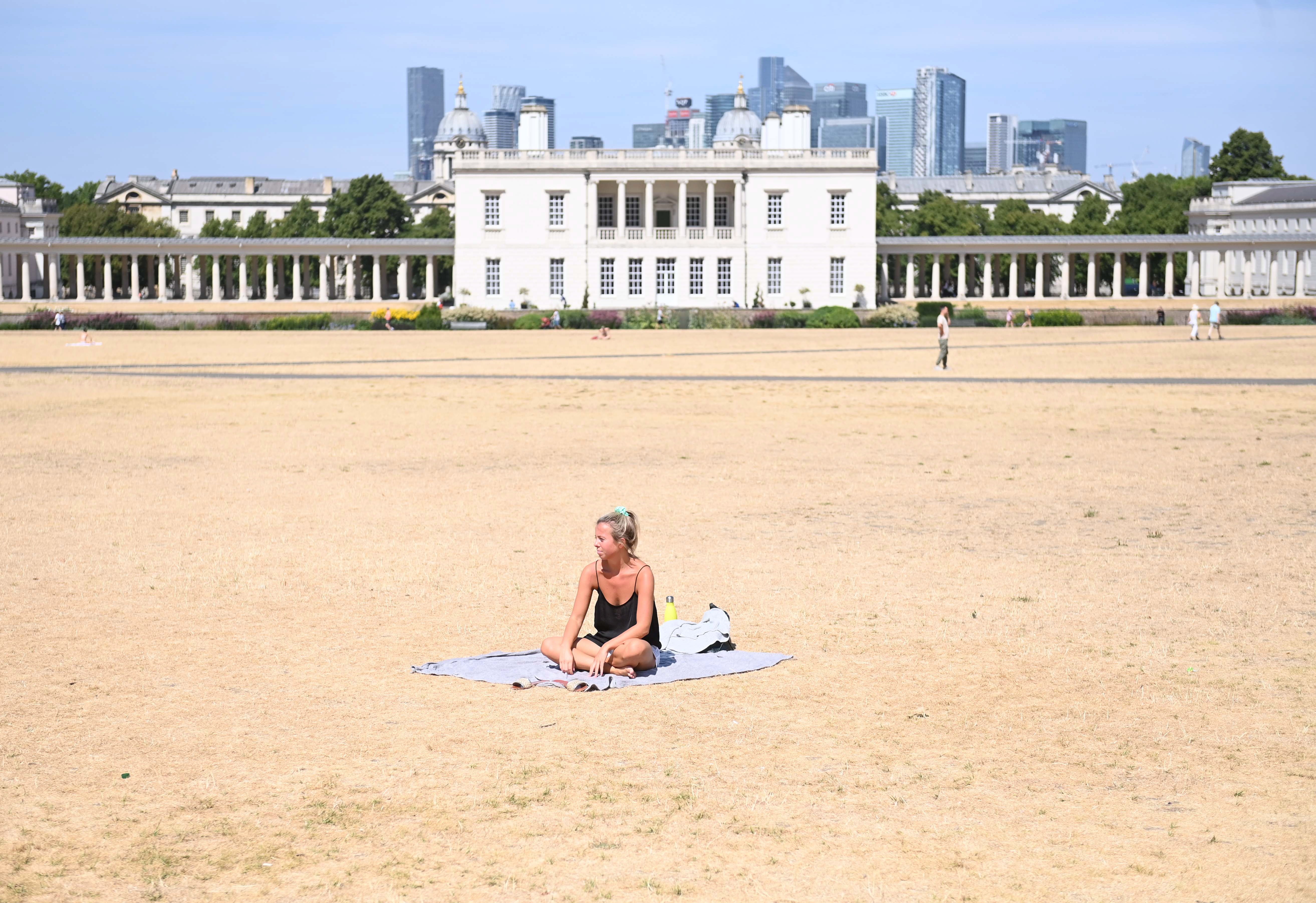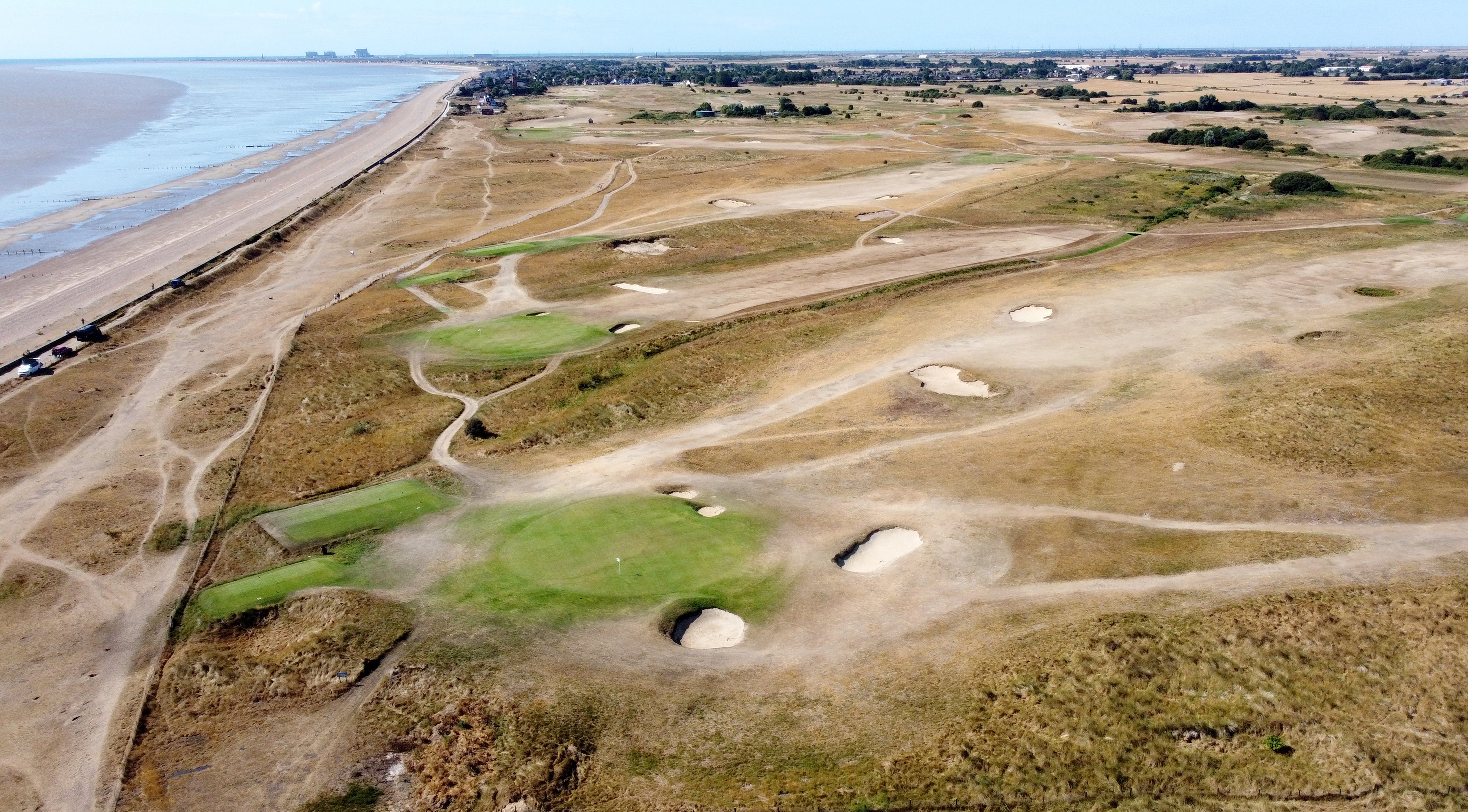Government has ‘no plan’ for ‘preventable’ drought that threatens wildfires and food supplies
Exclusive: More wildfires broke out in England and Wales in July than there were in entirety of last year
Your support helps us to tell the story
From reproductive rights to climate change to Big Tech, The Independent is on the ground when the story is developing. Whether it's investigating the financials of Elon Musk's pro-Trump PAC or producing our latest documentary, 'The A Word', which shines a light on the American women fighting for reproductive rights, we know how important it is to parse out the facts from the messaging.
At such a critical moment in US history, we need reporters on the ground. Your donation allows us to keep sending journalists to speak to both sides of the story.
The Independent is trusted by Americans across the entire political spectrum. And unlike many other quality news outlets, we choose not to lock Americans out of our reporting and analysis with paywalls. We believe quality journalism should be available to everyone, paid for by those who can afford it.
Your support makes all the difference.The government has been accused of having no plan to deal with drought conditions that have seen record-breaking wildfires.
Millions of people in southern England are subject to hosepipe bans, farmers are concerned about their crops and natural habitats are under pressure as months of dry weather push the country towards dwindling water supplies, with another heatwave on the horizon.
It is only set to get worse, with the climate emergency expected to bring drier, hotter summers to the UK and, with them, the potential for more frequent droughts.
“This crisis in our system was entirely predictable and the government should have both anticipated and planned for it,” Jim McMahon, the shadow secretary of state for environment, food and rural affairs, told The Independent.
“In a country with plenty of rain outside of mid-summer, we should not need to rely on hosepipe bans to get us through the dry months.”
It comes as The Independent can exclusively reveal that more wildfires broke out in England and Wales in July than there were in the whole of last year, as the dry and warm weather created conditions for fires to tear through the countryside and into cities.
There were 244 wildfires recorded in both countries in July, compared with only 11 in July last year – more than 22 times as many, and more than the 237 recorded in the whole of 2021, according to the National Fire Chiefs Council’s wildfire lead Paul Hedley.
Faced with hotter, drier summers, farmers are among those calling for decisive action from the government.
“I don’t think anybody is really prioritising the strategic importance of water,” Tom Bradshaw, the deputy president of the National Farmers’ Union, said of the government.
“That’s something that we need them to really value – the importance of water and underwriting our food security – far more than they do at the moment.”

Mr Bradshaw said earlier this week that the dry weather had caused the earliest start to the harvest for many farmers since 1976, prompting fears about the impact on food production and crop planting.
He said that although progress had been made, particularly with the government’s water infrastructure grant scheme that helps farmers build water-storage capacity on farms, more needed to be done.
“As we have a more extreme climate, we’re going to need to be more flexible about our water abstraction,” he said – something that could concern environmental campaigners.
The independent Climate Change Committee (CCC) has previously warned that the government is not well prepared for droughts.
Richard Millar, head of adaptation and climate science at the CCC, told The Independent that when it came to agriculture “a lot more needs to be done”.

More could also be done to incentivise water companies to plug leaks in their infrastructure and promote efficient water use among members of the public, the body said. If adaptation did not happen there would be a risk that demand for water could outstrip supply in certain parts of the country if global heating were to continue unabated.
The committee said the government needed to help build more resilience into agriculture by funding more research into the types of crops farmers can grow in hotter, drier conditions and by helping farmers make the right long-term decisions for their businesses when faced with more extreme weather.
Mr Millar said: “We still need to see more action from government through the regulator to the water companies and, ultimately, to us as water consumers, homes and businesses to ensure that we will have confidence we can maintain resilience in our public water system.”
The Environment Agency’s National Framework for Water Resources said that England would need an extra 25 per cent on top of its existing water supply by 2050, putting additional pressure on a system already in crisis.

The boom in wildfires, which destroyed 60 properties in London, Norfolk and Lincolnshire on 19 July, can devastate ecosystems for years, while critically low water levels are also having a growing impact on the natural world.
A recent report by The Wildlife Trusts found that by 2050 more than half of the country’s nature reserves would experience falls of more than 30 per cent in water levels during dry conditions like parts of the country are experiencing this summer.
“We’re very worried about this,” said Kathryn Brown, the director of climate change and evidence at The Wildlife Trusts.
“Government doesn’t have a plan at all for dealing with the effects on the natural environment from these drought conditions,” she told The Independent.
“We haven’t really seen any progress. And because our rivers are in such poor condition already, it makes it doubly worrying that there isn’t a plan, there isn’t a climate change adaptation plan for the natural environment, including our freshwater habitats.”
Drought can see water levels in water bodies fall, or even dry up completely, destroying ecosystems that live off the water, said Ms Brown. It can also concentrate the already high levels of pollution in rivers, and higher temperatures can reduce oxygen levels, causing algal blooms.
Although the Environment Agency does move fish from rivers where water levels have dropped too low, Ms Brown said there was not a lot of action taking place to protect wildlife in drought conditions.

Ms Brown said she wanted to see the government introduce a proper plan to help nature adapt as the climate changes, put out better information on what the public can do to help wildlife in hot, dry weather and make greater efforts to tackle pollution in the country’s rivers.
Every river in England is currently polluted, according to government figures.
A Defra spokesperson told The Independent: “The government is taking robust action to prepare for the challenges of dry weather. This includes developing an ambitious third National Adaptation Programme, which is our plan to make the UK a more climate-resilient country.
“We are already taking action to build resilience now and into the future, with water companies investing £469m to investigate strategic water resource options, such as new reservoirs, water recycling and water transfer schemes, to improve the resilience of England’s water supplies.
“All water companies have confirmed there are no threats to current essential supplies. The government is continuing to work closely with water companies and the Environment Agency to take the steps needed to protect public supplies, the environment and critical sectors that depend on water, including farmers.”






Join our commenting forum
Join thought-provoking conversations, follow other Independent readers and see their replies
Comments